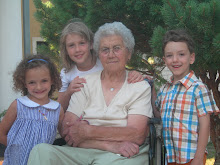It was the end of the day and we were
approaching the line for the tram at Disney after the fireworks. It was many people deep and even with
Disney’s infamous efficiency, we were going to be there a little while. Our parking lot was not that far away and Noah
and I were inclined to walk it instead. The
rest of our crew preferred waiting. I
hate lines.
At the other end of the spectrum - when I was
out in LA for Pancreatic Cancer Action Network leadership training a couple of
weeks ago, I was surrounded by folks that don’t want to wait. If it ain’t happening, these are the kinds of
folks that will make it happen. It was
awesome!
The Pancreatic Cancer Action Network is
representative of concerned people-power pushing against the way things are to
bring about the reality that they long to see.
Pan Can’s goal is to raise awareness of and maximize funding for
research to double the 5-year survival rate (from its’ current measly 6%) by
2020.
The Pancreatic Cancer Action Network represents
one of three legs that support the stool upon which most change happens in this
country. Besides charities and
non-governmental organizations, I see the government and faith communities as
the other most significant agents of change in our society.
The direct actions of dedicated people working
through NGOs and charity organizations to achieve change are similar to the
responsibility placed on each of us in this democracy. Sadly, this is a trait that we have readily relinquished
in America. We set up a system that
provided a mechanism (albeit imperfect) for groups of individuals to be the
change that they long for. Very sadly,
we have lazily and irresponsibly relinquished that vast potential for good by
vilifying the very means to accomplish all things for ourselves – mainly owning
(our role as) the government. We have
accepted the ruse of railing against the government. We have been bamboozled into forgetting that we
have been given a government of, by, and for the people. We are conveniently forgetting that we are the
government - the ones responsible for the way things are and the way things
could be.
I see direct parallels between the challenges
of tackling this most difficult and deadly cancer and the undermining of our
American democracy. In each case, a
beautiful and lofty idea is stymied by a current of other competing intentions.
Coming under a few basic themes, here’s how I
see the competing intentions of the pancreatic
cancer fight and our democracy challenge:
- 1. The complexity of the cancer itself (the location of the organ, the pathology of the disease, etc.), and the inherently complex problems we face as a nation - , seemingly resistant to the very best that we are able to throw at them.
- 2. Our personal and democratic health are market based. The relatively low (but rising) incidence rate (~40,000 Americans/year) discourages for-profit Pharma from making a targeted effort to solve this most challenging cancer problem. Similarly, the concerns of the average American are being ignored because the money spent under the guise of corporate free speech calls the shots.
- 3. Finally, the politics in this country put ideology ahead of the very real (sometimes deadly) realities of people’s lives. Even cancer doesn’t make the cut for funding these days. In the same way, our politics prioritize maintaining current power bases rather than addressing the very real suffering that many Americans face every day.
The passion I saw at the PanCan leadership
training taught me that every competing interest can be overcome by
people-power. No problem is too
complex. Free markets need not be the
only solution to our problems. Ideology
need not trump reality. Everything is
possible and we are just the folks to do it.
Although maybe a subset of the charity and NGO
category, faith communities function in a similar way – by rallying people behind
an idea or set of beliefs. I set them
apart because it is a particularly unique and beautiful thing when faith is
seen as a verb, an action, not passive.
People of faith are responsible for many of the non-governmental hospitals,
schools, social service and disaster relief agencies in our world. On a
large scale, it is groups of individuals that band together to address
society’s ills and bring just relief to the neediest among us. Catholic churches and organizations have been
doing it for a long time. Protestant
denominations, Jewish synagogue groups and Muslim organizations all do amazing good in
our society.
The hunger for better exists but charities and
faith-based organizations don’t appeal to everyone. In that sense, the tendency
to vilify the government and so distance ourselves from the widespread and
necessary good that we are called to do is so disturbing to me. It takes out of play one of the three biggest
agents of change in our society. For
some our shared nation-hood is the tie that binds. I hate to lose even one outlet in the
struggle to change this world.
Lord knows that there are many issues in this
broken world for us to make progress on. There’s no need to make excuses for the
line. Don’t wait on it either. If you don’t see what you want, find
like-minded someones and start walking.

